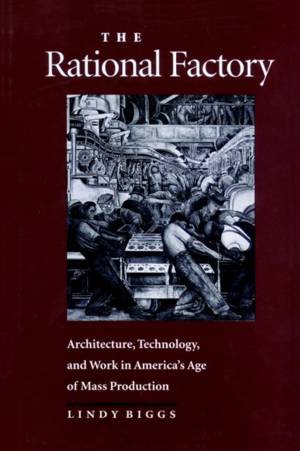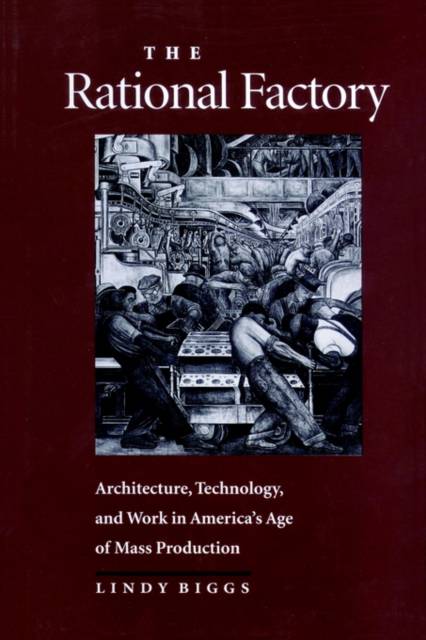
- Afhalen na 1 uur in een winkel met voorraad
- Gratis thuislevering in België vanaf € 30
- Ruim aanbod met 7 miljoen producten
- Afhalen na 1 uur in een winkel met voorraad
- Gratis thuislevering in België vanaf € 30
- Ruim aanbod met 7 miljoen producten
The Rational Factory
Architecture, Technology and Work in America's Age of Mass Production
Lindy BiggsOmschrijving
Searching for a "rational" workplace, turn-of-the-century engineers and industrial architects recast the factory itself in the image of the machine. Indeed, they considered the factory building the "master machine," containing and coordinating all of the machinery within. Such rational factory planning improved production speed and the management of workers. Once created, the rational factory transformed the nature of work, both human and mechanical.
In The Rational Factory, Lindy Biggs contends that factory design played a crucial role in the development of American mass production. Her interdisciplinary study draws from the fields of business history, engineering, technology, architecture, and theories of modernity. Why did some people want to rationalize the factory, she asks, and how did the system impact those who worked under it?
Specificaties
Betrokkenen
- Auteur(s):
- Uitgeverij:
Inhoud
- Aantal bladzijden:
- 224
- Taal:
- Engels
- Reeks:
- Reeksnummer:
- nr. 11
Eigenschappen
- Productcode (EAN):
- 9780801872457
- Verschijningsdatum:
- 1/03/2003
- Uitvoering:
- Paperback
- Formaat:
- Trade paperback (VS)
- Afmetingen:
- 152 mm x 229 mm
- Gewicht:
- 326 g

Alleen bij Standaard Boekhandel
Beoordelingen
We publiceren alleen reviews die voldoen aan de voorwaarden voor reviews. Bekijk onze voorwaarden voor reviews.









